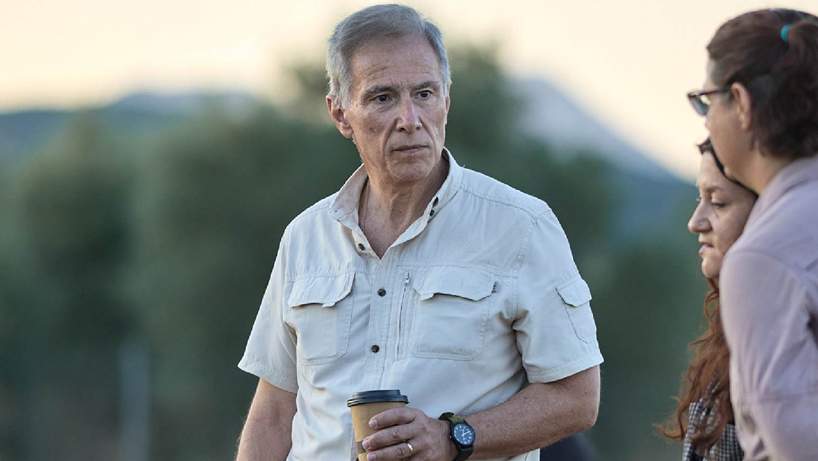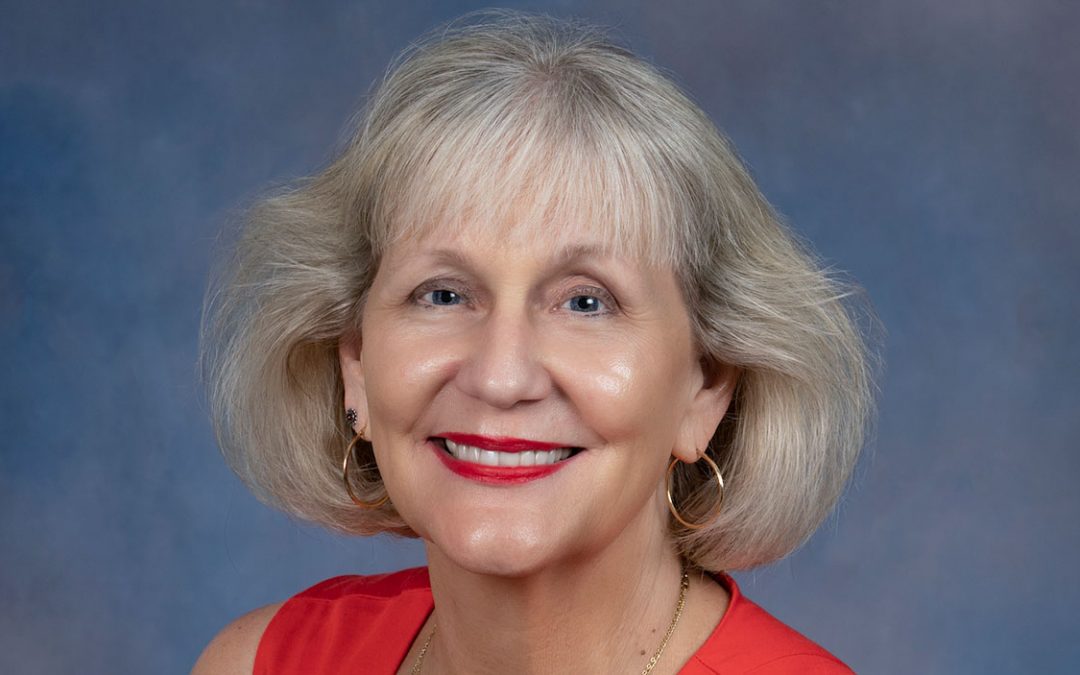
Michael Cosmopoulos, a professor of archaeology and the Hellenic Government-Karakas Family Foundation Professor in Greek Studies at the University of Missouri–St. Louis, won election to the Academy of Athens, Greece’s national academy of arts and sciences, in the area of Bronze Age archaeology. (Photo courtesy of Michael Cosmopoulos)
Michael Cosmopoulos has received acclaim on both sides of the Atlantic Ocean for his contributions to archaeology and the study of Ancient Greece.
Cosmopoulos, a professor of archaeology and the Hellenic Government-Karakas Family Foundation Professor in Greek Studies at the University of Missouri–St. Louis, is an elected member of the Royal Society of Canada, the European and the American Academy of Arts and Sciences.
But none of those recognitions could quite compare to his latest honor: election as a regular member of the Academy of Athens, Greece’s national academy of arts and sciences. Cosmopoulos was elected in the area of Bronze Age archaeology.
“It’s a little more emotional and special because, obviously, I am from Greece,” said Cosmopoulos, who will be formally inducted at a ceremony being planned for next spring. “It’s a recognition from the place where I was born and then grew up and also the place where I do my field work.”
The Academy of Athens was founded in 1926 but has roots in the historical Platonic Academy. Election is considered the highest honor a scholar can achieve. There are only about 40 members at a given time – each designated the chair of their chosen field of study and considered the top scholar in that area. Members of the Academy hold onto their title until they die and are known as “Immortals.”
Cosmopoulos’ contributions to the field include his excavations at Eleusis, the home of the famed ancient secret cult known as “Eleusinian Mysteries,” and also the excavation of the ancient Peloponnesian village of Iklaina in southwestern Greece. What he and his team have uncovered at Iklaina over the past 25 years has shaped people’s understanding of the origins of a two-tiered system of government.
His two immediate predecessors as chairs of prehistoric archaeology were George Mylonas and Spyros Iakōvidēs, and both were among his most influential mentors. Mylonas, a former faculty member at Washington University in St. Louis, was instrumental in helping him get a scholarship to come to St. Louis to pursue his doctorate, which he completed in 1991. Cosmopoulos returned to the city to join the UMSL faculty in 2001 after more than a decade at the University of Manitoba.
By the time Cosmopoulos came to UMSL, he had already started working at the site that would come to define his career. Systematic excavations of Iklaina revealed the remains of a cyclopean terrace – a multistory building foundation made of massive boulders. Such a foundation would have been typically only found at the site of palaces and Mycenaean capitals.
Using magnetometry and electric resistivity, Cosmopoulos and his team discovered dozens of buildings surrounding the terrace. They extended across an area of nearly 32 acres, pointing to it not being merely a confined palace but an entire city, including streets lined with homes and workshops.
“I think the turning point was 2009,” Cosmopoulos said. “Until then, we had been excavating different houses of the of the settlement, but in 2009, we cleared that massive cyclopean – meaning gigantic – building. Until then, it had been covered by an overgrown mound. Initially, we did not have the means of clearing it. It was a major undertaking. But in 2009, we finally got around to clearing that, and it turned out that we have this massive building underneath. Slowly from that point on, it became apparent that this was a formal, monumental building, possibly the administrative center along with all the surrounding monumental buildings, and then we started uncovering things like paved roads, paved piazzas, and the tablet which, I think, must have belonged to an archive.”
They’ve still uncovering important artifacts that point to the importance of the site, and it’s now become plausible that Homer referenced the site in his epic poem The Iliad.
The site dates to about 1,000 years before the emergence of powerful city-states such as Athens and Sparta.
“It seems that in the Bronze Age, we have the first small states built around a city,” Cosmopoulos said. “During the second half of the second millennium BC, one of those states seems to have become very powerful and annexed forcibly its neighbors, thus creating the first complex state that we are aware of in western civilization.
“Based on the evidence from Iklaina, it looks like war and violence were at the center of the creation of the first states in the western world, which I think is fascinating. It says a lot about human nature.”
Cosmopoulos and his team have reached the point in the excavation of Iklaina that they have begun shifting their attention to restoration of the site. The hope is that in a few years it will be ready to open to the public so people can come and learn about the history uncovered there.
One of the reasons he’s most excited about his election to the Academy of Athens is that as he looks to the future, he sees the potential to collaborate with other chairs on new avenues of research.
“This gives us the opportunity to go into different directions with archaeology, combining traditional archaeological work with studies in ancient Greek literature and incorporating science even more into archaeology,” he said.
Cosmopoulos expressed pride in bringing attention to UMSL through his election.
“It’s important for UMSL to be recognized internationally,” he said. “We have amazing people at the university. They do amazing work, and we are a strong research university. I think it’s very important to us that people in other parts of the country nationally and also in other countries internationally recognize our name.”














